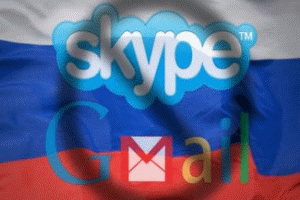Skype users were targeted by bad-ad pushing Angler crooks
 Cybercrooks have been caught running booby-trapped ads on Skype to redirect users towards an Angler exploit kit trap. The tactic, part of a broader malvertising campaign, shows that users can be exposed to malicious ads pushing ransomware and other crud without even using a browser-based app, the most common exploit route.
Cybercrooks have been caught running booby-trapped ads on Skype to redirect users towards an Angler exploit kit trap. The tactic, part of a broader malvertising campaign, shows that users can be exposed to malicious ads pushing ransomware and other crud without even using a browser-based app, the most common exploit route.
Security researchers at F-Secure uncovered the role of Skype in helping to push an malvertising campaign launched via the AppNexus ad platform. The same malvertising campaign also featured poisoned ads on various websites, including shopping sites, gaming forums, news sites, and internet portals.
Read more11 Unsecure Mobile and Internet Messaging Apps
 In the face of widespread Internet surveillance, we need a secure and practical means of talking to each other from our phones and computers. For years, privacy and security experts worldwide have called on the general public to adopt strong, open-source cryptography to protect our communications.
In the face of widespread Internet surveillance, we need a secure and practical means of talking to each other from our phones and computers. For years, privacy and security experts worldwide have called on the general public to adopt strong, open-source cryptography to protect our communications.
Many companies offer “secure messaging” products — but are these systems actually secure? The Electronic Frontier Foundation’s secure messaging scorecard made a list of mobile and Internet messaging services that scored well on privacy and security and the services that scored poorly. Let’s focus primarily on the most popular messengers.
Read moreChechen leader (Russia) Ramzan Kadyrov offered Russia to be without foreign messengers
 Using Skype, Twitter and other western services harms the security of the country, says the head of Chechnya. Chechen leader Ramzan Kadyrov said that the spread of western communication services on the Internet harms national security.
Using Skype, Twitter and other western services harms the security of the country, says the head of Chechnya. Chechen leader Ramzan Kadyrov said that the spread of western communication services on the Internet harms national security.
Their use encourages the ongoing double standards west policy, Kadyrov said. He considers situation to be unacceptable in which the West controls Russian users, and Russia is far from the steering information. The main problem is lack of control. Kadyrov also offered to turn off the Internet, as a global network, in his opinion, interfere with the proper education of youth.
Read moreFacebook, Gmail, Skype face Russia ban under 'anti-terror' data snooping plan
 Russia's parliament has passed a bill that could see Western technology firms barred from operating if they fail to store Russian data within the country.
Russia's parliament has passed a bill that could see Western technology firms barred from operating if they fail to store Russian data within the country.
The legislation would require Silicon Valley companies, such as Facebook, Google’s Gmail, and Microsoft-owned Skype, to relocate Russian customer data back onto Russian soil in order to allow authorities to legally acquire and inspect data at will. Currently, Russian authorities have no powers to acquire data outside its borders, unless they submit a lawful mutual legal assistance request, which can be denied by that nation.
Read moreResearchers show why the NSA's phone metadata is far from anonymous
 Since the first of many leaked documents showed that the NSA has been gathering phone records as part of its anti-terrorism program, there's been an ongoing fight over just what these records reveal.
Since the first of many leaked documents showed that the NSA has been gathering phone records as part of its anti-terrorism program, there's been an ongoing fight over just what these records reveal.
To supporters, the metadata collection is a limited system that's rarely queried and doesn't contain enough information to be considered an invasive search: the NSA has said it doesn't collect either the content of calls or the names attached to phone numbers.
As many technology and legal experts on the other side say, though, metadata matters, and a Stanford Security Lab project demonstrates that removing names from a database doesn't effectively mean much.
Read moreMicrosoft helped the NSA bypass encryption, new Snowden leak reveals
 Microsoft worked hand-in-hand with the United States government in order to allow federal investigators to bypass encryption mechanisms meant to protect the privacy of millions of users, Edward Snowden.
Microsoft worked hand-in-hand with the United States government in order to allow federal investigators to bypass encryption mechanisms meant to protect the privacy of millions of users, Edward Snowden.
According to an article published on Thursday by the British newspaper, internal National Security Agency memos show that Microsoft actually helped the federal government find a way to decrypt messages sent over select platforms, including Outlook.com Web chat, Hotmail email service, and Skype. Snowden, the 30-year-old former systems administrator for NSA contractor Booz Allen Hamilton, provided the paper with files detailing.
Read moreU.S., British intelligence mining data from nine U.S. Internet companies in broad secret program
 The National Security Agency and the FBI are tapping directly into the central servers of nine leading U.S. Internet companies, extracting audio and video chats, photographs, e-mails, documents, and connection logs that enable analysts to track foreign targets, according to a top-secret document obtained by The Washington Post.
The National Security Agency and the FBI are tapping directly into the central servers of nine leading U.S. Internet companies, extracting audio and video chats, photographs, e-mails, documents, and connection logs that enable analysts to track foreign targets, according to a top-secret document obtained by The Washington Post.
The program, code-named PRISM, has not been made public until now. It may be the first of its kind.
The NSA prides itself on stealing secrets and breaking codes, and it is accustomed to corporate partnerships that help it divert data traffic or sidestep barriers.
Read more New secured zone of Google Play: secure messenger SafeUM for Android. Download, Install, Communicate
New secured zone of Google Play: secure messenger SafeUM for Android. Download, Install, Communicate
Axarhöfði 14,
110 Reykjavik, Iceland














